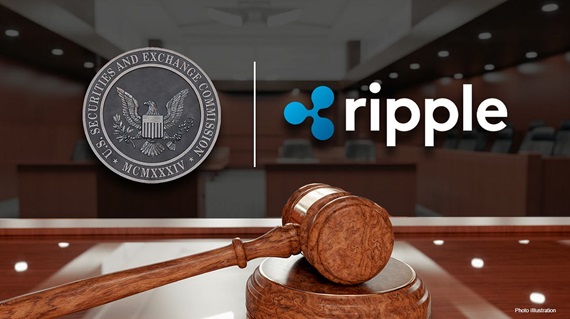
The cryptocurrency world has been closely watching the legal battle between Ripple Labs and the U.S. Securities and Exchange Commission (SEC), which has taken a dramatic turn with the SEC seeking a staggering $2 billion fine from Ripple. This development is a significant moment in the ongoing debate over the regulation of digital assets and their classification.
The case centers around the SEC’s allegations that Ripple conducted unregistered securities offerings by selling XRP, its native digital currency, to institutional investors. Ripple, known for its payment protocol that aims to facilitate faster and more affordable cross-border transactions, has been under scrutiny for its XRP sales practices, which the SEC claims violated federal securities laws.
The Ripple vs. SEC lawsuit, a pivotal case for the cryptocurrency industry, has seen significant developments recently. The case, which began in December 2020, revolves around the SEC’s allegations that Ripple Labs conducted unregistered securities offerings through the sale of XRP. Ripple Labs has maintained that XRP is a currency rather than a security, which would exempt it from such regulations.
Register for Tekedia Mini-MBA edition 19 (Feb 9 – May 2, 2026): big discounts for early bird.
Tekedia AI in Business Masterclass opens registrations.
Join Tekedia Capital Syndicate and co-invest in great global startups.
Register for Tekedia AI Lab: From Technical Design to Deployment (next edition begins Jan 24 2026).
The legal dispute has raised critical questions about the nature of cryptocurrencies and whether they should be classified as securities, which would subject them to stricter regulatory oversight. The outcome of this case could set a precedent for how other digital assets are treated by regulatory bodies in the United States and globally.
Ripple’s defense has been robust, challenging the SEC’s stance and advocating for a clear regulatory framework that distinguishes cryptocurrencies from traditional securities. The company argues that XRP is a currency and not a security, and thus should not be subject to the same regulations that govern stocks and bonds.
As of the latest updates, the legal battle has entered its third calendar year and is approaching a conclusion. Ripple’s legal team has been buoyed by a judge’s ruling against the SEC in a separate case involving the Binance (BNB) crypto exchange, which they believe could positively impact their case. Moreover, Ripple’s Chief Legal Officer, Stuart Alderoty, has expressed confidence in ultimately prevailing against the SEC’s claims.
The implications of the SEC’s proposed fine are far-reaching. A penalty of this magnitude could not only affect Ripple’s operations and financial health but also send shockwaves through the cryptocurrency market, potentially influencing investor confidence and the valuation of digital assets.
As the legal proceedings continue, the cryptocurrency community is left to ponder the future of digital asset regulation. Will this case bring about much-needed clarity, or will it further complicate the already complex regulatory landscape? The answers to these questions will undoubtedly shape the evolution of the cryptocurrency industry for years to come.
For more detailed information on the case and its implications, you can refer to the analysis by attorney Jeremy Hogan, or read the latest updates on the SEC’s actions against Ripple. The full extent of the SEC’s claims and Ripple’s response can also be found in recent articles covering the lawsuit.
The outcome of this lawsuit is eagerly anticipated by the cryptocurrency community, as it could influence the regulatory approach to digital assets in the United States and potentially worldwide. The final ruling, expected sometime this year, will have far-reaching implications for the industry, affecting not only Ripple’s operations but also the broader interpretation of digital assets under securities law.



